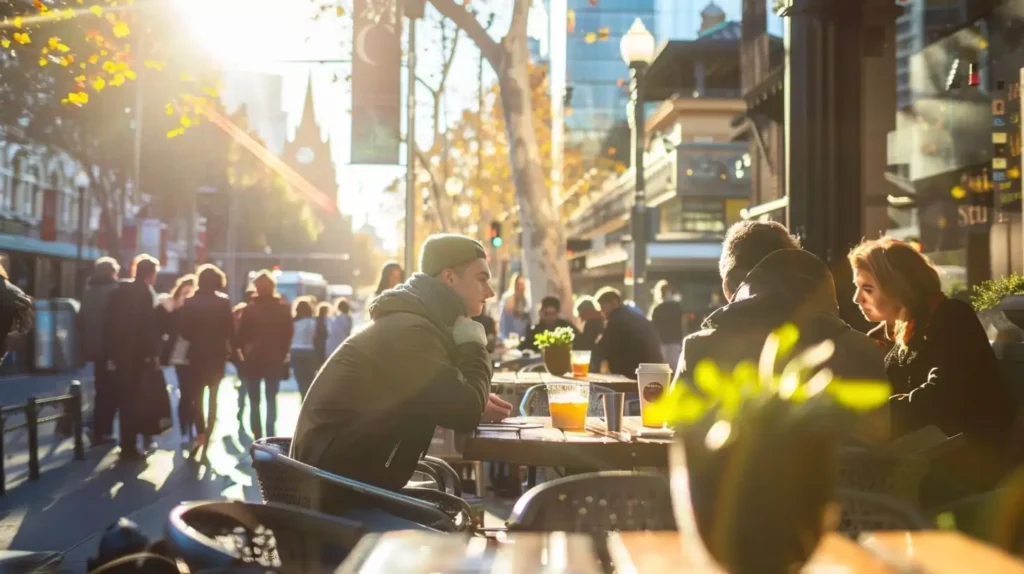Table of Contents
The coffee industry has a long and complex history in Portugal, that has impacted global coffee trade in ways few could have predicted. Portugal’s role in introducing coffee to Brazil and other African colonies is well-documented, and has had a significant impact on the growth and development of these regions over time.
Key Takeaways
- Portugal introduced coffee to Brazil in the 1700s, starting a journey that would see Brazil become the world’s leading coffee producer.
- After gaining independence, Portuguese African colonies faced a sharp decline in their coffee trade due to challenges like poor infrastructure and changing global markets.
- Timor – Leste relies heavily on coffee for income but struggles with issues such as fluctuating global prices and transport difficulties to get their product to international buyers.
- The impact of colonisation and the slave trade by Portugal has deeply influenced modern – day perceptions of ethical sourcing in the global coffee industry.
- In Portugal, cafes are not just places to drink coffee; they’re central to social life. With unique terms like “bica,” “pingado,” and “galão,” Portuguese café culture is rich with tradition.
Portugal’s Pivotal Role in Global Coffee Trade
During the 1700s, the Portuguese took a bold step by bringing coffee to Brazil, a move that would eventually transform the country into the largest coffee producer in the world. This development, while impressive, was not without its challenges, as the coffee trade in Portugal’s African colonies, including Angola, Mozambique, and Guinea-Bissau, experienced a decline following their independence from Portugal.

Coffee’s Importance in Timor-Leste
Portugal continued to play an important role in the coffee industry, particularly in Timor-Leste, a former Portuguese colony that has relied heavily on coffee as a major source of income for rural communities since the 1800s. However, this industry is not without its vulnerabilities, as it is highly susceptible to global coffee price fluctuations, deficient infrastructure, and lack of capital.
Colonial Impact and the Coffee Landscape
The impact of Portuguese colonization and slave trade on the production of commodities in the New World, including coffee, cannot be understated. Although the Portuguese did not directly contribute to the growth of the coffee industry, their presence in territories where coffee later became a significant export cannot be ignored.
Portugal’s exploration and colonization of African territories, specifically the Gulf of Guinea and Cape Verde Islands, resulted in the establishment of a large slave trade during the 15th century. While the role of Portugal in these events remains controversial, it is important to recognize that it has had a lasting impact on coffee culture in Portugal today.
Portuguese Coffee Culture – Modern Day
In Portugal, visiting a coffee shop is a deeply ingrained cultural tradition, with cafes being present on nearly every street corner, and espresso being the most popular drink. Beyond being a daily routine, coffee in Portugal also serves as a social activity, with the phrase “Vamos tomar um café” (let’s go for a coffee) reflecting its significance in bringing people together.
In fact, drinking coffee at a café is so popular that it is significantly cheaper than making it at home, with an espresso typically costing less than €1 and sometimes as little as €0.50. On average, a Portuguese adult consumes over 4kg of coffee beans per year.
Unique Portuguese Coffee Terminologies
In contrast to many other countries, the Portuguese have their own unique terms for coffee drinks and do not use Italian words such as latte and cappuccino. For example, an espresso is called a bica, a coffee with a little bit of milk is called a pingado, and a latte-like drink made with one part espresso and three parts steamed milk is called a galão.
The galão is often paired with a pastry and enjoyed during breakfast or a mid-morning break.
The Charm of Traditional Portuguese Cafés
In Portugal, traditional coffee shops are referred to as “cafés” and vary in style, decoration, and atmosphere. In urban areas, most traditional cafes have a modern look with contemporary decor, while cafes in rural areas tend to have a more traditional style.
In these traditional cafes, coffee is served at the counter by a “pastelero” or “barista” who is responsible for preparing and serving the coffee. These cafes offer a cozy atmosphere with marble counter tops, large mirrors, and a selection of newspapers and magazines for customers to peruse while enjoying their coffee.
Unique coffee terms
Diving into Portuguese coffee culture uncovers a treasure chest of fascinating terms. These words are more than just labels; they tell stories of tradition, taste, and the perfect morning start.
- “Bica” – This is what you ask for if you want an espresso in Portugal. The story goes that “bica” comes from Lisbon, where coffee drips out of the machine like water from a pipe. It’s short, strong, and wakes you up faster than a cold shower on a winter morning.
- “Pingado” – Imagine your usual espresso but now with a dash of milk to soften the blow. That’s pingado for you. It’s like adding a little cushion to your chair – not necessary, but oh so comfortable.
- “Galão” – Now this one takes the game to another level. Picture a glass filled three-quarters with frothy milk and topped off with coffee. If cappuccino had a Portuguese cousin, galão would be it – taller, lighter, and dressed in glass.
These unique terms are doorways into Portuguese coffee culture and offer insights into how locals enjoy their brews every day. By understanding these terms, you’re not just ordering coffee; you’re dipping your toes into centuries-old traditions.
Next up let’s explore the ambiance and charm of traditional Portuguese cafes.
Traditional Portuguese Cafes
Urban vs. rural cafe styles
Urban cafes in Portugal tap into the pulse of city life. They flaunt modern designs and buzzing atmospheres, attracting locals and tourists alike. Here, espresso shots fuel morning rushes and laptops open as if on cue.
The air hums with chatter over caramel lattes and iced coffees. These spots mirror the fast pace of urban living, blending tradition with trends.
Rural coffee houses paint a different picture. Stepping into one feels like time slows down. They cherish traditional looks and a homely feel, where everyone knows your name. It’s not uncommon to see groups gathered, sharing stories over cups of brewed coffee or pastel de nata in hand.
These establishments hold onto history while serving up warmth and familiarity, much like a cosy sweater on a chilly day.

Leading coffee brands in Portugal
Portugal boasts a thriving coffee culture, with several leading brands dominating the market. These brands have played a significant role in shaping the country’s coffee landscape and are favored by both locals and visitors. Here are some of the top coffee brands in Portugal:
- Delta: One of the most prominent names in Portuguese coffee, Delta holds an impressive 50% market share, making it a household favorite across the country.
- Buondi: Known for its high-quality beans and rich flavors, Buondi has established itself as a major player in the Portuguese coffee industry, offering a range of blends to suit diverse preferences.
- Nicola: Renowned for its premium quality and exquisite taste, Nicola has earned a loyal following among coffee enthusiasts seeking an authentic Portuguese coffee experience.
- Sical: With a legacy dating back to the 1960s, Sical has remained a popular choice for those who appreciate traditional flavors and expertly roasted beans.
- Chave de Ouro: As one of Portugal’s oldest coffee brands, Chave de Ouro continues to uphold its reputation for delivering exceptional coffee that reflects the nation’s rich coffee heritage.
These leading brands reflect Portugal’s commitment to providing an array of high-quality coffees to satisfy consumers’ discerning palates while contributing to the vibrant coffee culture that defines this picturesque nation.
Conclusion
The Portuguese coffee legacy has undeniably left an indelible mark on the global coffee trade and culture. From pioneering the cultivation of coffee in Brazil to shaping modern-day coffee consumption, Portugal’s influence reverberates worldwide.
The unique terms for different types of coffee drinks reflect Portugal’s rich history and cultural significance. Traditional Portuguese cafes, whether urban or rural, offer a glimpse into the diverse and vibrant coffee scene that has been established through generations.
As we delve deeper into this captivating realm of Portuguese coffee heritage, it becomes clear that its impact extends beyond borders and continues to captivate aficionados around the world.
FAQs
1. What makes Portuguese coffee stand out from the rest?
Portuguese coffee is recognized for its unique combination of robusta and arabica beans, typically resulting in light to medium roasts. This specific blend contributes to Portugal’s distinct espresso culture, known for its exceptionally smooth flavour profile.
2. Can you find Italian coffee in Portugal?
Yes, Italian coffee is readily available in Portugal. Despite Portugal’s strong and unique coffee culture, Italian espresso has become quite popular and can be found in numerous local cafes. Establishments like A Brasileira and Café Nicola are known for serving Italian espresso that is highly authentic.
3. What’s the deal with third-wave coffee in Portugal?
Third-wave coffee, which emphasizes high-quality coffee production and precise brewing methods, is gaining popularity in Portugal. Specialty coffee shops such as Copenhagen Coffee Lab and Fábrica Coffee Roasters are notable for their focus on manual pour-over techniques and the provenance of their coffee beans.
4. Where can I experience classic Portuguese café culture?
For an authentic experience of traditional Portuguese café culture, visiting historic cafes like Martinho da Arcada or Café Majestic is recommended. These establishments offer more than just coffee; they provide a glimpse into the past, recalling a time when notable figures like Fernando Pessoa frequented these spots for inspiration and contemplation.
5. How did colonies influence Portuguese coffee trade?
Colonial territories were pivotal to the expansion of Portugal’s coffee trade, serving as crucial sources of coffee beans. Brazil, in particular, played a significant role in introducing Portuguese traders to robusta coffee beans. This relationship significantly influenced Portugal’s coffee culture and its prominence in the global coffee market.
6. Are there any famous writers associated with Portuguese cafés?
Yes, Fernando Pessoa, a renowned Portuguese writer, is famously associated with several Lisbon cafés, particularly A Brasileira in the Chiado district. It is believed that Pessoa spent considerable time in these cafés, where he found inspiration and penned some of his most celebrated works. These establishments were not just venues for coffee but were also vibrant centers of literary activity.



